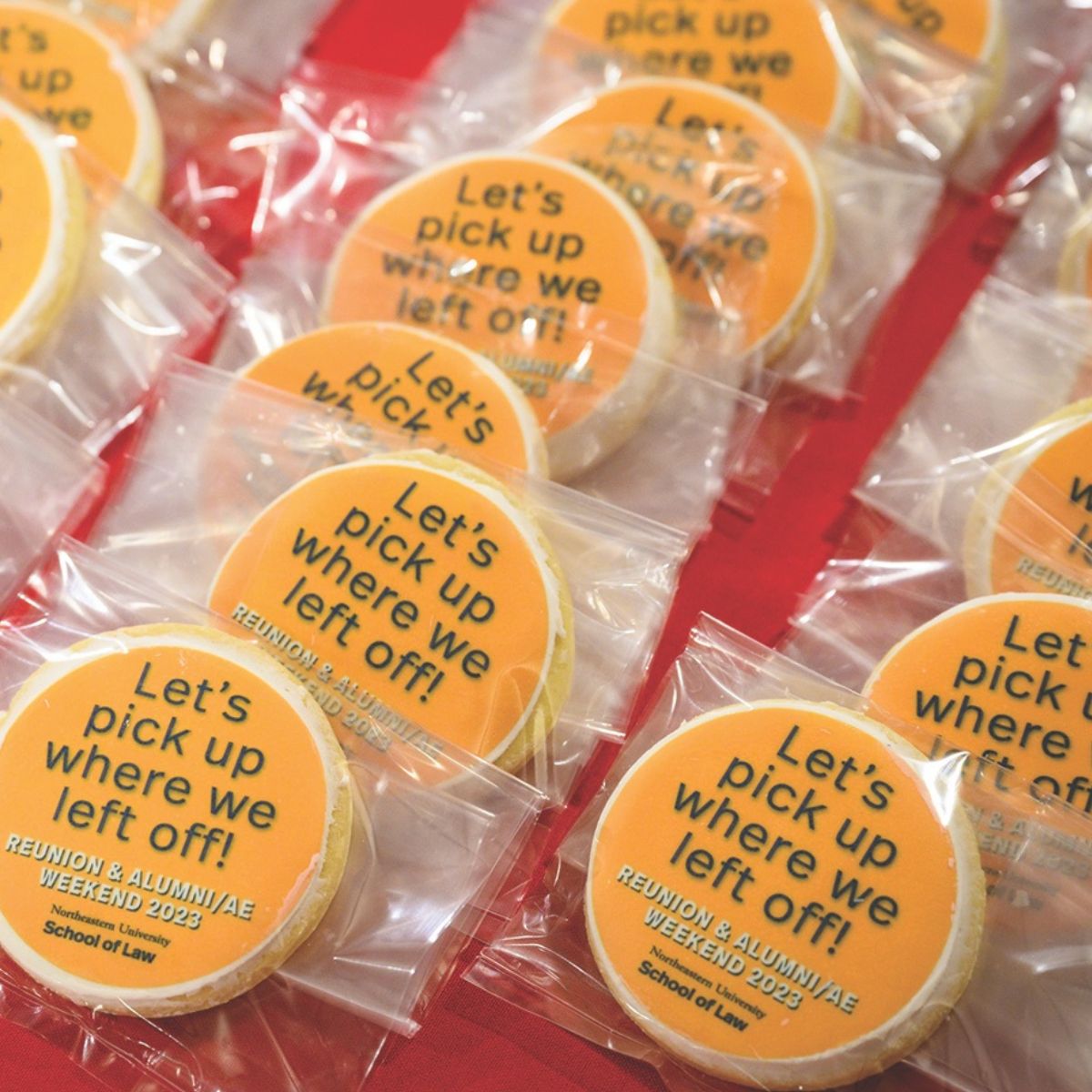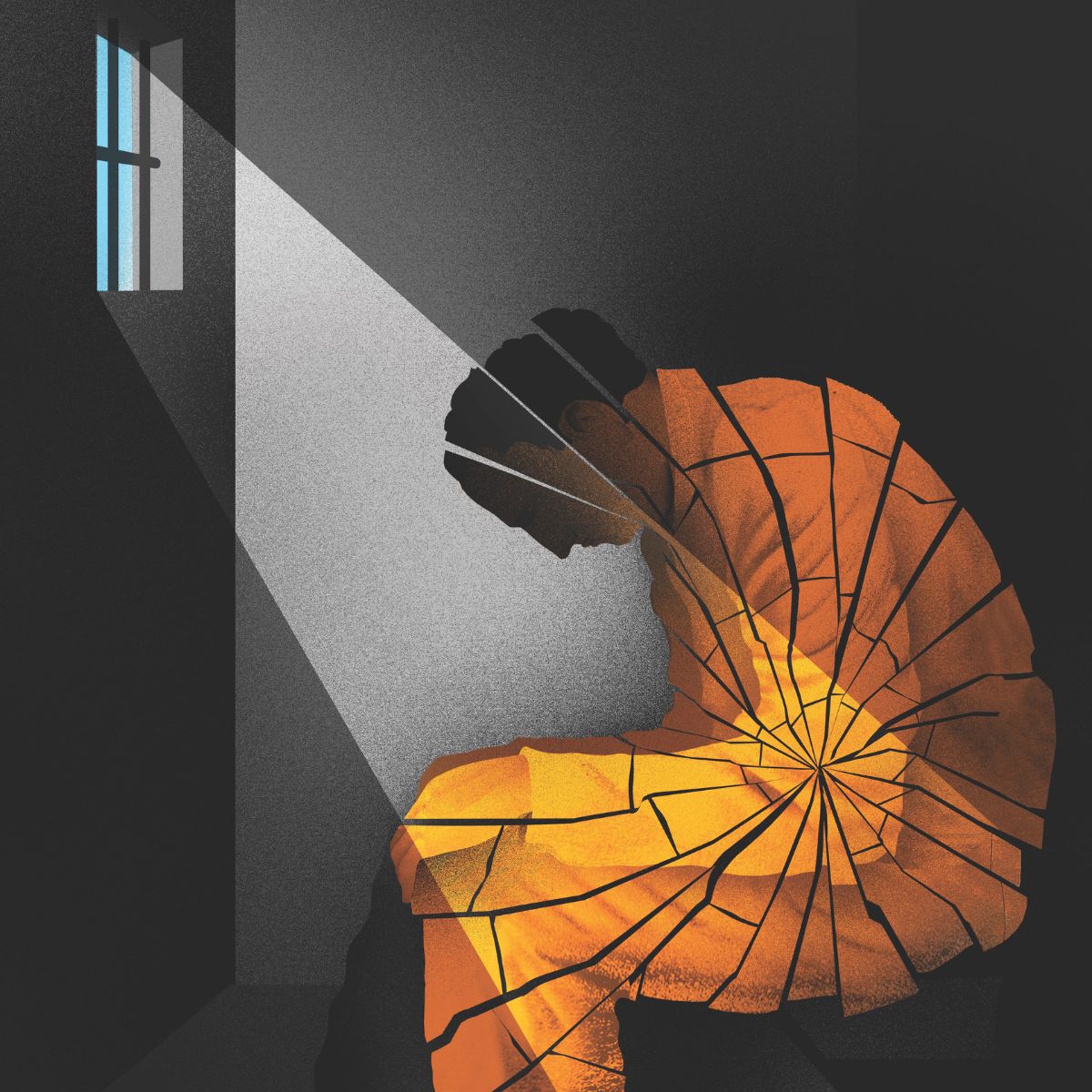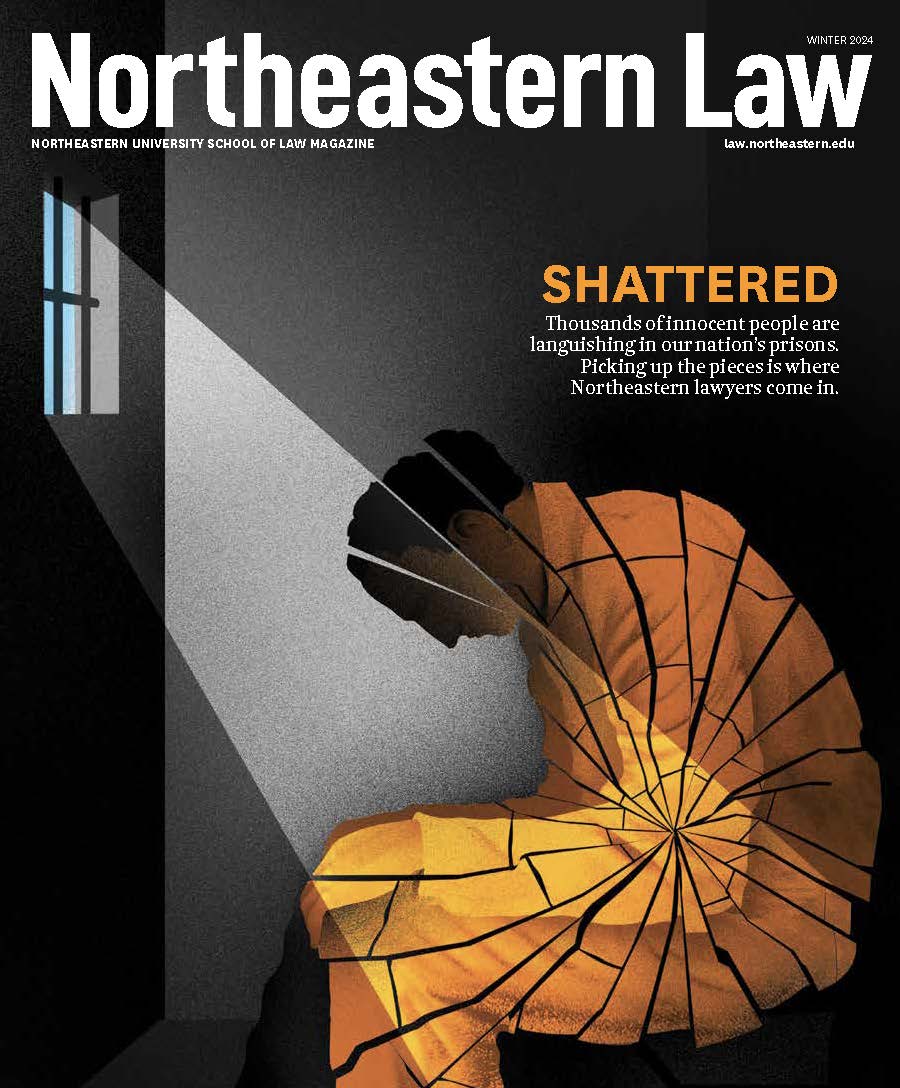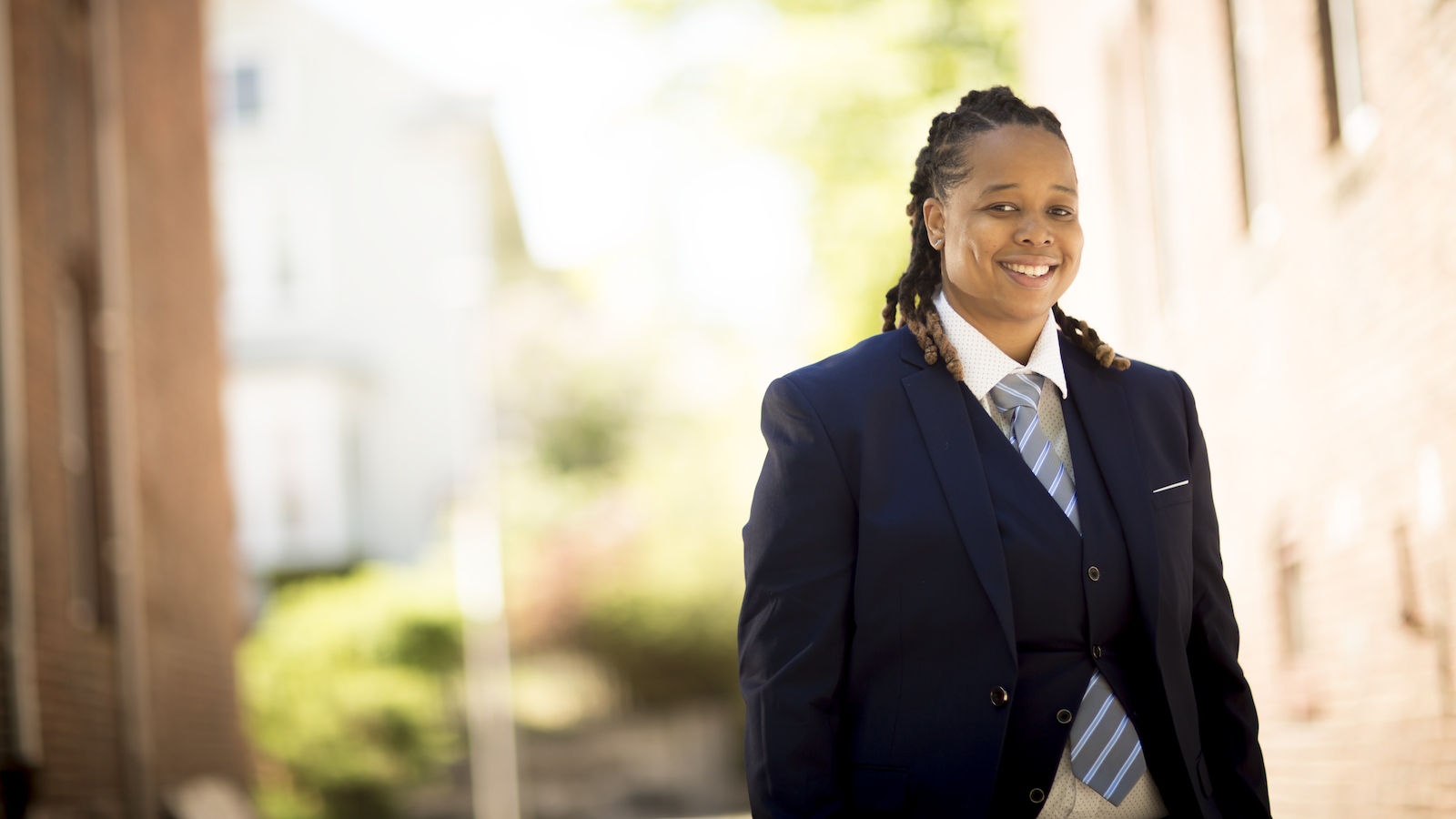Dean’s Message
Embracing the Dream
In January, Northeastern University held its annual celebration of Martin Luther King Jr. Day. At the event, I was honored to read a citation for Charlotte Mathews-Nelson, a Northeastern graduate and 45-year university employee currently with the law school’s Center for Law, Equity and Race. Throughout her life, Mathews-Nelson has led by example: through community service, activism and a commitment to standing up to injustice. The MLK event also featured a conversation with Imari K. Paris Jeffries, president and CEO of Embrace Boston, the community organization behind The Embrace monument to Martin Luther King Jr. and Coretta Scott King on the Boston Common. Mathews-Nelson is among 69 civil rights leaders whose names are inscribed on the paving stones surrounding The Embrace in honor of their contributions to the ongoing fight for racial equity. At the event, projected onto a screen were the words of Coretta Scott King:
“Love is such a powerful force. It’s there for everyone to embrace — that kind of unconditional love for all humankind. That is the kind of love that impels people to go into the community and try to change conditions for others, to take risks for what they believe in.”
Amid tremendous social upheaval, these words serve as worthy guideposts for our law school. And this issue of our magazine demonstrates some of the many ways in which we embrace law as a tool for justice.
Our cover story focuses on how Professor Daniel Medwed, our students and graduates advocate against the stringent procedural rules that contribute to the ongoing incarceration of the innocent.
Within these pages, we also see how Professor Martha Davis and our students involved with the Program on Human Rights and the Global Economy are working with Massachusetts State Senator Becca Rauch ’04 to obtain statistics about water shutoffs, supporting the fundamental human right to wat
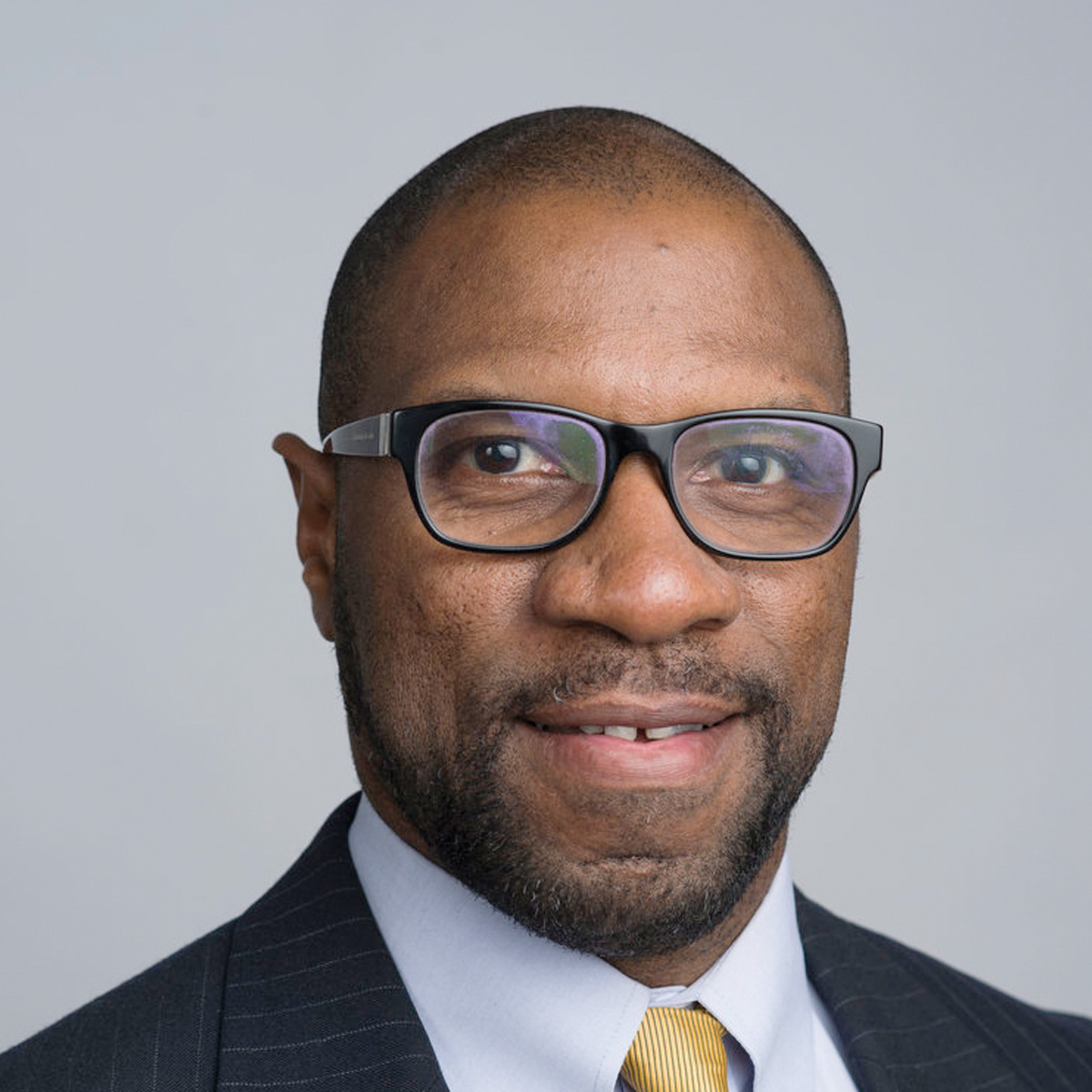
James Hackney
Dean and Professor of Law
Our Civil Rights and Restorative Justice Project (CRRJ) continues to investigate and document cases of lethal anti-Black violence in the Jim Crow era. Now, CRRJ’s research will be the focus of a state public school lesson plan in North Carolina. This is another way in which we promote change: secondary students will study a CRRJ case, learn about how Black troops fought in World War II and take action to educate others in their community. We are honored to include in this issue a column by the Rev. Willie Bodrick II ’20, who unpacks the challenges facing our nation’s urban centers. As the Rev. Bodrick so eloquently states, urban centers are “the beating hearts of our nation,” and we must do all that we can to empower the people and businesses who make up these critical communities.
There is so much work to be done in our nation — and our world. We look in every direction and see so many wrongs that need to be set right. But at this law school, we embrace hope. As Martin Luther King Jr. said, “For when people get caught up with that which is right and they are willing to sacrifice for it, there is no stopping point short of victory.”

Share
Professor Emeritus Roger Abrams, who served as dean of Northeastern Law from 1999 to 2002, passed away on November 12, 2023, in University Park, Florida, after a long battle with cancer. A prolific author and leading authority on sports law, labor law and legal education, Professor Abrams retired from Northeastern in 2018. Professor Emerita Mary O’Connell ’75 reflects on Professor Abrams’ contributions and camaraderie
More than 240 graduates and friends were welcomed back to campus for a weekend of fun and friendship on October 20-21, 2023, as we celebrated Reunion and Alumni/ae Weekend.
Thousands of innocent people are languishing in our nation’s prisons. Picking up the pieces is where Northeastern lawyers come in.



